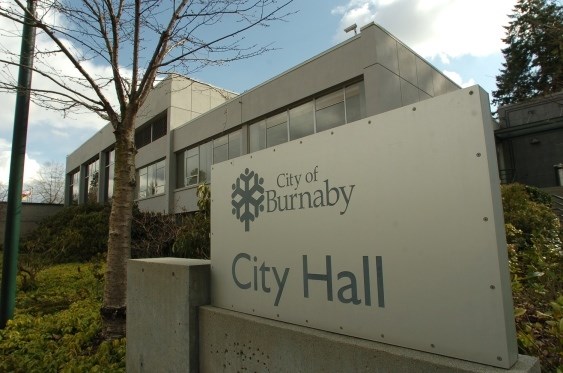Burnaby residents will see a 2.95 per cent property tax increase when they get their 2017 bill in the mail.
City council approved the hike, part of the city’s five-year financial plan, at a meeting Monday night.
The increase, which covers the cost of collective agreement, contract and inflation increases, equals $48.39 on the average residential property valued at $1,064,132.
Compared to other municipalities, Burnaby is in the mid to low range, according to finance director Noreen Kassam.
“There wasn’t a lot of room to move because a lot of it was due to things that we couldn’t control,” she said, adding Surrey’s rate is 4.5 per cent, Vancouver’s is 3.9 per cent and Maple Ridge’s rate is 3.15 per cent. .
When all the departmental requests came and all the specific program offerings were looked at, Kassam said the tax hike was near the five-per-cent mark.
“It was something that was definitely digestible. The city goes through a rigorous process to bring it down to something that the councillors (can) present to the citizens. From that perspective, we went through and prioritized our requests and then went back again and sifted through,” she told the NOW.
Information about a surplus from the 2016 operating budget will be presented to council on May 1.
Last year’s tax increase originally started at 2.95 per cent, too, but was brought down to 2.65 per cent. The city took $1.2 million from its 2015 operating surplus, which was $8.6 million, according to a 2015 financial report, and put it in the 2016 budget to help minimize impact.
Asked why there was no movement on the 2017 rate, Kassam said about 2.44 of the 2.95 per cent makes up the collective agreement and the contract increases, while the rest accommodates growth. Had the city gone any lower, she said the public would have seen a cut in services.
“There’s only so low we can go because we have to keep the lights on, keep the community centres running, provide the citizens with all the services we’re there to provide that they’re paying taxation for. When you have contract increases that are greater than inflation, well you’re kind of stuck there,” she said.
At Monday’s meeting, Coun. Dan Johnston pointed to the province and B.C. Assessment, which sets the assessed values of the properties.
“The city has no control over what those rates are. I know mine’s up quite a bit this year. I understand most people around the Lower Mainland are looking at increased assessments. Because of that process, it’s going to mean that the tax burden is shifted around the Lower Mainland, so that some people are going to pay more than they should, or feel they should, and other people are going to pay less,” he said.
The city has previously asked the B.C. Liberals to freeze assessment at 2015 levels, but that request was denied.
The total operating and capital budget for 2017 is $631.9 million.
Under provincial legislation, the city must adopt the financial plan bylaw on or before May 15.
Property taxes are due July 5.



